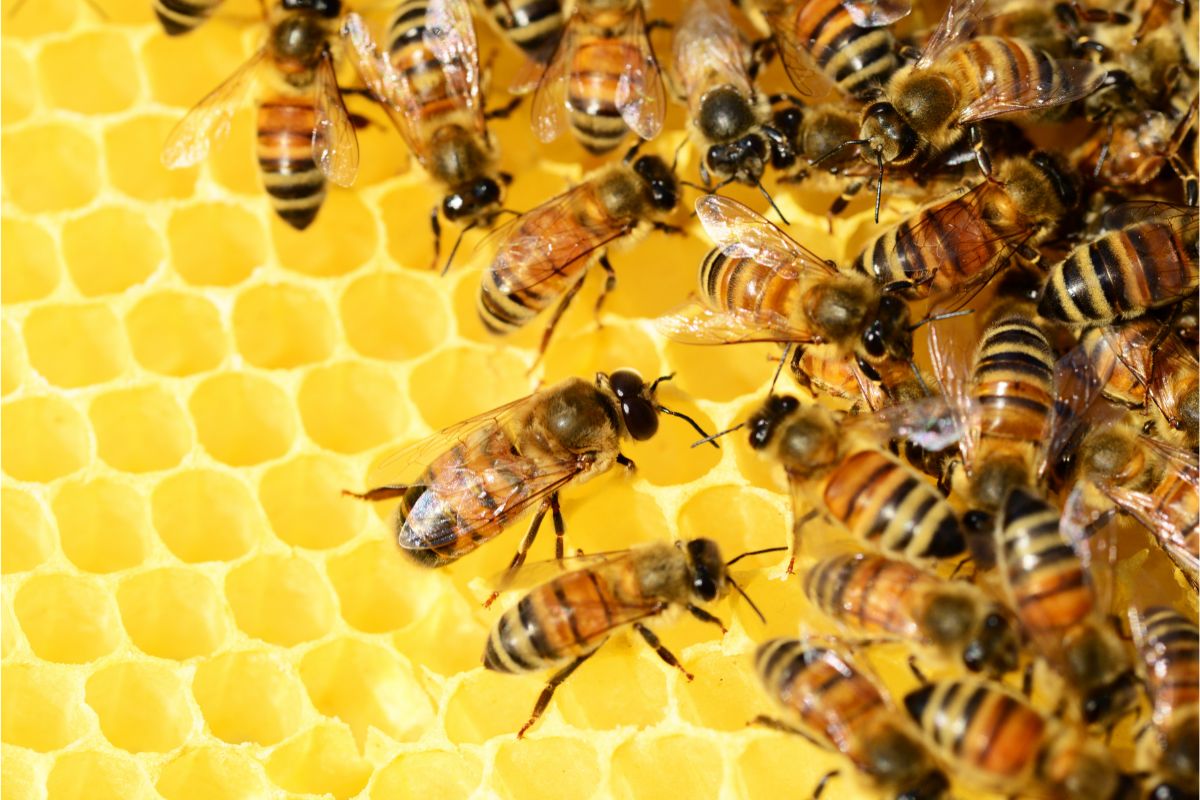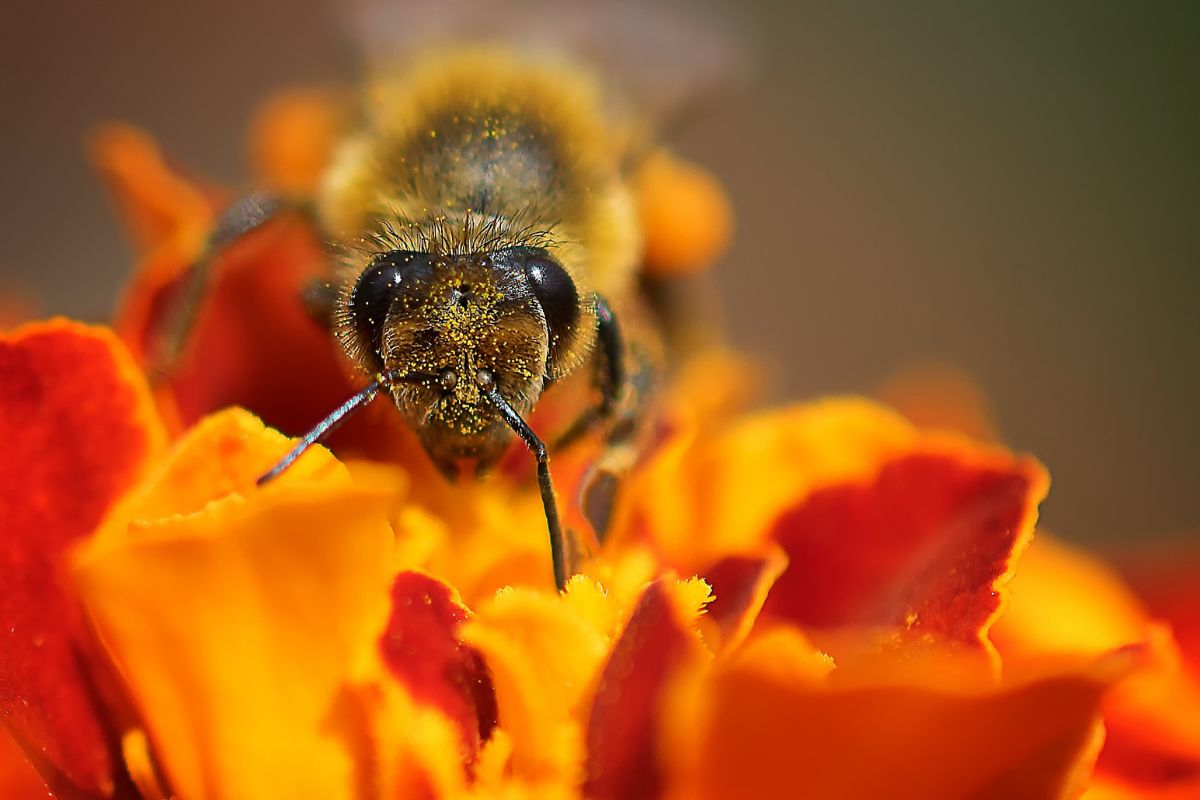Bees are one of the most important insects on our planet. They are responsible for pollinating plants, which in turn produce fruits and vegetables that we consume every day.

However, there has been growing concern over the declining population of bees in recent years.
Many scientists and environmentalists believe that bees are endangered, which could have a devastating impact on our ecosystem and food supply.
In this article, we will explore whether bees are truly endangered.
Are Bees Endangered?
Firstly, it is important to note that there are over 16,000 species of bees in the world, and not all of them are facing the same threats.
The most commonly known bee species, the Western honeybee, has been experiencing a decline in population due to various factors such as habitat loss, pesticide use, and climate change.
This decline is known as colony collapse disorder (CCD), which is a phenomenon where entire bee colonies die off unexpectedly.
Why Are Bees Endangered?
The decline of bee populations is a pressing environmental issue that has received increasing attention in recent years.
Human activities, particularly industrialized agricultural practices, have played a major role in the endangerment of bees.
Converting natural ecosystems into monoculture farms restricts the diversity and abundance of flowering plants, reducing food sources available to bees.
Furthermore, pesticide use can be lethal to bees or interfere with their navigational abilities, affecting their reproduction and overall fitness.
Globalization
Globalization has also allowed the transmission of pests and invasive species like the Asian hornet, which poses a significant threat to native bee populations.
While there are efforts to combat this by implementing measures to control the spread of these invasive species or breeding-resistant strains of bees, such solutions are often limited in scope and effectiveness.
Global Warming
In addition to human activities, global warming has been another factor contributing to the decreasing population size of bees.
Weather irregularities stemming from changing climates can disrupt pollination schedules by causing misalignment between blossoming plants and independent bee activity-thereby reducing efficient pollination that leads to reduced harvest yield for produce farmers etc.,
Why Do We Need Bees?
Bees are one of the most important insects on our planet. They play a vital role in pollination, which is essential for the survival of many plant species, and hence for our food supply.

Bees are the most efficient and widespread pollinators, thanks to their specialized ability to collect pollen and nectar from flowers.
In fact, it is estimated that bees pollinate more than 80 percent of flowering plants that rely on pollinators.
Without bees, many of our favorite fruits and vegetables would not exist or would have much lower yields.
Moreover, bees have a mutualistic relationship with plants that have evolved over millions of years to be highly effective.
Plants provide bees with food-rich nectar and pollen; in return, bees act as faithful pollen carriers between flowers.
This relationship benefits both partners: bees get the nourishment they need to survive, while plants get what they need to reproduce.
Almost all aspects of life on earth are interconnected – if one part is removed or disrupted (like the decline of bee populations), it can cause ripples throughout the ecosystem with unpredictable consequences.
Therefore, it is vital that we do everything we can to protect these tiny but mighty insects for future generations.
What Would Happen If Our Bees Went Extinct?
Bees are an essential part of our ecosystem, and their importance cannot be overstated. Their role in pollination is critical to the survival of many plants, including those that we rely on for food.
If bees were to go extinct, it would have devastating consequences for both people and the environment.
The loss of bees would result in a drastic decline in crops that rely on pollination, which could lead to a food crisis.
The impact of bee extinction would be felt not just in terms of quantity, but also in terms of quality.
The reduced supply of certain fruits and vegetables would lead to higher costs and decreased accessibility for people who depend on them as a staple part of their diets.
Moreover, the decimation of these plants would further exacerbate biodiversity loss and ultimately create a chain reaction where other animals also suffer as they no longer have access to essential food sources like seeds or nectar.
So, What Can We Do To Help Bees?
Bees are an essential component of our ecosystem, yet their population has been rapidly declining due to various factors, including habitat loss and pesticide use.
However, as people, we have the power and responsibility to help these vital pollinators thrive once again.
One way we can do this is by pressuring governments to ensure that pesticides approved for use are not harmful to bee populations.
Another effective way to help bees is by preventing habitat loss and deforestation. Without adequate environments for bees to build homes and find plentiful food sources, their population will continue to decline.
Buying organic produce is also another effective way of helping the bees since organic farming methods avoid using pesticides that can kill insects.
We need to recognize that just as flowers and bees engage in mutually beneficial exchanges, it is crucial for us who rely on crop yield benefits from these insects’ pollinating activities should lead the way in fostering the health of bees by contributing towards creating a sustainable environment for these critical pollinators.
Final Thoughts
The importance of bees in our ecosystem cannot be overstated. Their role in pollination is critical to the survival of many plants, including those that we rely on for food.
If bees were to go extinct, it would have devastating consequences for both people and the environment.
Therefore, it is vital that we do everything we can to protect these tiny but mighty insects for future generations.
It’s time for us to take action and do our part in preserving the health of bees and the ecosystems they support.
- Do Bug Zappers Kill Bees? Completely Explained - April 9, 2024
- Does Brake Cleaner Kill Bees? Full Explanation - March 20, 2024
- Do Bald-Faced Hornets Kill Honey Bees? & How to Protect Them - March 4, 2024
